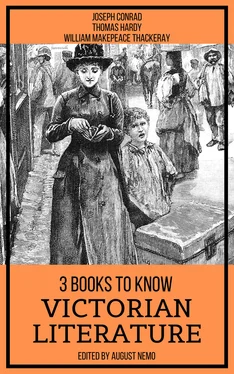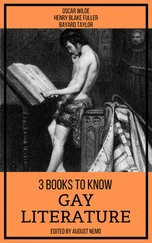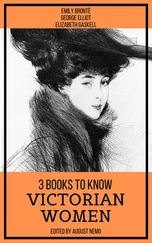"I won't have you speak like it, dear Tess! Distinction does not consist in the facile use of a contemptible set of conventions, but in being numbered among those who are true, and honest, and just, and pure, and lovely, and of good report—as you are, my Tess."
She struggled with the sob in her throat. How often had that string of excellences made her young heart ache in church of late years, and how strange that he should have cited them now.
"Why didn't you stay and love me when I—was sixteen; living with my little sisters and brothers, and you danced on the green? O, why didn't you, why didn't you!" she said, impetuously clasping her hands.
Angel began to comfort and reassure her, thinking to himself, truly enough, what a creature of moods she was, and how careful he would have to be of her when she depended for her happiness entirely on him.
"Ah—why didn't I stay!" he said. "That is just what I feel. If I had only known! But you must not be so bitter in your regret—why should you be?"
With the woman's instinct to hide she diverged hastily—
"I should have had four years more of your heart than I can ever have now. Then I should not have wasted my time as I have done—I should have had so much longer happiness!"
It was no mature woman with a long dark vista of intrigue behind her who was tormented thus, but a girl of simple life, not yet one-and twenty, who had been caught during her days of immaturity like a bird in a springe. To calm herself the more completely, she rose from her little stool and left the room, overturning the stool with her skirts as she went.
He sat on by the cheerful firelight thrown from a bundle of green ash-sticks laid across the dogs; the sticks snapped pleasantly, and hissed out bubbles of sap from their ends. When she came back she was herself again.
"Do you not think you are just a wee bit capricious, fitful, Tess?" he said, good-humouredly, as he spread a cushion for her on the stool, and seated himself in the settle beside her. "I wanted to ask you something, and just then you ran away."
"Yes, perhaps I am capricious," she murmured. She suddenly approached him, and put a hand upon each of his arms. "No, Angel, I am not really so—by nature, I mean!" The more particularly to assure him that she was not, she placed herself close to him in the settle, and allowed her head to find a resting-place against Clare's shoulder. "What did you want to ask me—I am sure I will answer it," she continued humbly.
"Well, you love me, and have agreed to marry me, and hence there follows a thirdly, 'When shall the day be?'"
"I like living like this."
"But I must think of starting in business on my own hook with the new year, or a little later. And before I get involved in the multifarious details of my new position, I should like to have secured my partner."
"But," she timidly answered, "to talk quite practically, wouldn't it be best not to marry till after all that?—Though I can't bear the thought o' your going away and leaving me here!"
"Of course you cannot—and it is not best in this case. I want you to help me in many ways in making my start. When shall it be? Why not a fortnight from now?"
"No," she said, becoming grave: "I have so many things to think of first."
"But—"
He drew her gently nearer to him.
The reality of marriage was startling when it loomed so near. Before discussion of the question had proceeded further there walked round the corner of the settle into the full firelight of the apartment Mr Dairyman Crick, Mrs Crick, and two of the milkmaids.
Tess sprang like an elastic ball from his side to her feet, while her face flushed and her eyes shone in the firelight.
"I knew how it would be if I sat so close to him!" she cried, with vexation. "I said to myself, they are sure to come and catch us! But I wasn't really sitting on his knee, though it might ha' seemed as if I was almost!"
"Well—if so be you hadn't told us, I am sure we shouldn't ha' noticed that ye had been sitting anywhere at all in this light," replied the dairyman. He continued to his wife, with the stolid mien of a man who understood nothing of the emotions relating to matrimony—"Now, Christianer, that shows that folks should never fancy other folks be supposing things when they bain't. O no, I should never ha' thought a word of where she was a sitting to, if she hadn't told me— not I."
"We are going to be married soon," said Clare, with improvised phlegm.
"Ah—and be ye! Well, I am truly glad to hear it, sir. I've thought you mid do such a thing for some time. She's too good for a dairymaid—I said so the very first day I zid her—and a prize for any man; and what's more, a wonderful woman for a gentleman-farmer's wife; he won't be at the mercy of his baily wi' her at his side."
Somehow Tess disappeared. She had been even more struck with the look of the girls who followed Crick than abashed by Crick's blunt praise.
After supper, when she reached her bedroom, they were all present. A light was burning, and each damsel was sitting up whitely in her bed, awaiting Tess, the whole like a row of avenging ghosts.
But she saw in a few moments that there was no malice in their mood. They could scarcely feel as a loss what they had never expected to have. Their condition was objective, contemplative.
"He's going to marry her!" murmured Retty, never taking eyes off Tess. "How her face do show it!"
"You be going to marry him?" asked Marian.
"Yes," said Tess.
"When?"
"Some day."
They thought that this was evasiveness only.
"Yes—going to marry him—a gentleman!" repeated Izz Huett.
And by a sort of fascination the three girls, one after another, crept out of their beds, and came and stood barefooted round Tess. Retty put her hands upon Tess's shoulders, as if to realize her friend's corporeality after such a miracle, and the other two laid their arms round her waist, all looking into her face.
"How it do seem! Almost more than I can think of!" said Izz Huett.
Marian kissed Tess. "Yes," she murmured as she withdrew her lips.
"Was that because of love for her, or because other lips have touched there by now?" continued Izz drily to Marian.
"I wasn't thinking o' that," said Marian simply. "I was on'y feeling all the strangeness o't—that she is to be his wife, and nobody else. I don't say nay to it, nor either of us, because we did not think of it—only loved him. Still, nobody else is to marry'n in the world—no fine lady, nobody in silks and satins; but she who do live like we."
"Are you sure you don't dislike me for it?" said Tess in a low voice.
They hung about her in their white nightgowns before replying, as if they considered their answer might lie in her look.
"I don't know—I don't know," murmured Retty Priddle. "I want to hate 'ee; but I cannot!"
"That's how I feel," echoed Izz and Marian. "I can't hate her. Somehow she hinders me!"
"He ought to marry one of you," murmured Tess.
"Why?"
"You are all better than I."
"We better than you?" said the girls in a low, slow whisper. "No, no, dear Tess!"
"You are!" she contradicted impetuously. And suddenly tearing away from their clinging arms she burst into a hysterical fit of tears, bowing herself on the chest of drawers and repeating incessantly, "O yes, yes, yes!"
Having once given way she could not stop her weeping.
"He ought to have had one of you!" she cried. "I think I ought to make him even now! You would be better for him than—I don't know what I'm saying! O! O!"
They went up to her and clasped her round, but still her sobs tore her.
"Get some water," said Marian, "She's upset by us, poor thing, poor thing!"
They gently led her back to the side of her bed, where they kissed her warmly.
Читать дальше












